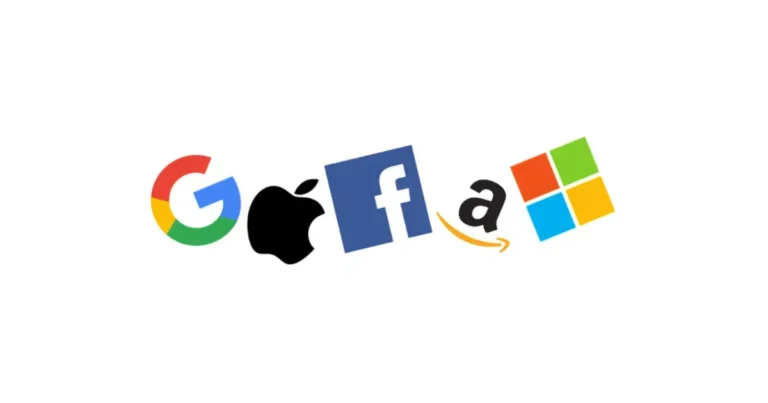
Remember when David stood up to Goliath? These days, it seems our government would rather offer Goliath a cup of tea and apologise for the inconvenience of having to step around us.
The sight of tech billionaires queuing up like eager schoolboys at Trump’s inauguration should have been a wake-up call. Instead, our government hit the snooze button. In May, they quietly withdrew the Digital Services Tax that would have finally made Google, Facebook, Amazon and their ilk pay something resembling a fair share. The cost? A neat $479 million hole in government coffers over four years. That’s not pocket change – it’s enough to fund dozens of schools, hundreds of teachers, or thousands of hip replacements for our aging population.
But here’s what really gets my goat: while these tech giants ship $4 billion in revenue offshore annually from Kiwi consumers, your local dairy owner, plumber, or café proprietor pays every cent of their tax obligations. Try explaining to them why a company earning billions gets a free pass while they’re scrambling to meet their GST payments.
I’ve run businesses. I understand the pressure of competing in the marketplace. But there’s something fundamentally wrong when the biggest players in the game get to write their own rules. The government’s withdrawal of the Digital Services Tax wasn’t just a policy decision – it was a capitulation to international pressure that makes a mockery of our sovereignty.
The proposed 3 per cent tax on digital services wasn’t revolutionary. France has one. The UK has one. Even India stood firm. But when the Trump administration started making threatening noises about trade retaliation, our government folded faster than a bad poker hand.
What message does this send? That we’re open for business, as long as that business involves extracting wealth from New Zealand without contributing to the roads, schools, and hospitals that make their profits possible?
For years, we’ve been told to wait for the OECD’s multilateral solution to digital taxation. It’s like waiting for a bus that everyone knows isn’t coming. The OECD process has been stalled, watered down, and lobbied into irrelevance by the very companies it was meant to regulate. Meanwhile, these tech behemoths continue their tax-minimisation strategies, routing profits through Ireland, Luxembourg, or whichever jurisdiction offers the best deal this quarter.
I studied economics. I understand the arguments about international competitiveness and the risks of going it alone. But at what point does pragmatism become cowardice? When do we stop waiting for a perfect global solution that will never come, and start demanding that companies doing business in New Zealand actually contribute to New Zealand?

Last week, I had a chat with a guy who runs a successful software company. He employs 45 people, pays his taxes religiously, and contributes to his community. He’s competing against international firms that pay virtually no tax here. “It’s like running a race where some competitors get to start halfway down the track,” he told me.
He’s right. When Amazon can undercut local retailers not just through scale but through tax avoidance, when Google can dominate our advertising market while contributing nothing to our public services, we’re not talking about free market competition. We’re talking about a rigged game.
Luxon’s government loves to talk about supporting small businesses, about innovation and entrepreneurship. But their actions tell a different story. They’re creating a two-tier system where international tech giants operate under different rules than the businesses that actually employ Kiwis and invest in our communities.
There’s a deeper issue here that should concern anyone who cares about democratic governance. When governments cave to pressure from foreign corporations and administrations, they’re essentially admitting that real power lies elsewhere. That the wishes of Silicon Valley executives and Washington politicians matter more than the needs of New Zealand citizens.
This isn’t just about tax revenue, though $479 million would certainly help address our infrastructure deficit or reduce hospital waiting lists. It’s about whether we still believe in the basic principle that those who benefit from our society should contribute to it.
So what do we do? First, we need to stop being apologetic about demanding fair taxation. These companies need us more than we need them. New Zealanders aren’t going to stop using search engines or social media if these companies have to pay tax. They’re certainly not going to pull out of a profitable market over a 3 per cent levy.
Second, we should be working with like-minded nations – not waiting for a unanimous global agreement that will never come, but building coalitions with countries that share our values and face similar challenges. If Australia, New Zealand, Canada and others presented a united front, it would be much harder for tech giants to play the divide and conquer game.
Third, we need to support local alternatives. Every dollar spent with a New Zealand business that pays New Zealand taxes is a vote for a fairer system.
Finally, we need to hold our politicians accountable. Ask your MP why they think it’s acceptable for tech billionaires to avoid tax while your local businesses carry the full load. Demand to know what they’re doing about it. Email Revenue Minister Simon Watts S.Watts@ministers.govt.nz and tell him what you think!
The government’s retreat on digital taxation isn’t just a missed opportunity – it’s a betrayal of every small business owner, every PAYE taxpayer, and every citizen who believes in fairness. We can do better. We must do better. Because if we don’t stand up for tax justice now, we’re essentially admitting that in the 21st century, might makes right and money makes the rules.
That’s not the New Zealand I want to leave to my grandchildren. What about you?

Steve Baron is a New Zealand-based political commentator and author. He holds a BA with a double major in Economics and Political Science from the University of Waikato and an Honours Degree in Political Science from Victoria University of Wellington. A former businessman in the advertising industry, he founded the political lobby group Better Democracy NZ. https://stevebaron.co.nz
Kz7 says:
It’s a bloody ripoff. This shouldn’t be allowed to happen